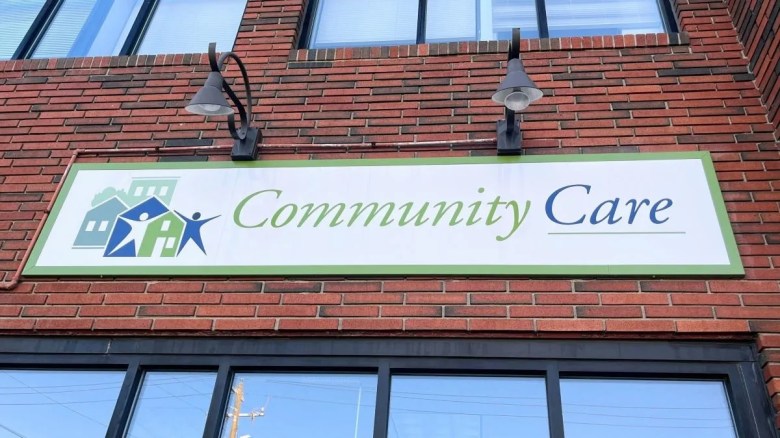Lifestyle
Maine’s Visitation Services Fail to Meet Family Needs

Maine’s child welfare system faces significant challenges as the state’s largest contracted provider of visitation services has failed to meet its contractual obligations. In 2024, Community Care scheduled only 10% of required visits, far below the 90% mandated by the Maine Department of Health and Human Services (DHHS). This shortfall has raised concerns about the impact on families affected by child removal due to abuse or neglect.
The state is required to arrange visits between parents and children within seven days after a child is removed from their home. These visits are crucial for maintaining familial bonds and facilitating reunification. However, according to an analysis by The Maine Monitor, Community Care managed to schedule just 30 of 276 referrals within the required timeframe last year. This means that many families experienced delays, with a median wait of 29 days for scheduled visits.
Community Care, which operates in five of the eight DHHS districts, has seen its contract renewed despite this poor performance. The new agreement, signed in December 2023, allows the provider to bill the state up to $292,791 per month, amounting to approximately $3.5 million annually. Observers have noted that such a renewal raises questions about accountability and oversight in the child welfare system.
Alisa Morton, a spokesperson for DHHS, acknowledged that the department is concerned with the lack of timely services. “That current providers are not providing expected services is of serious concern to the Department,” she stated. Yet, she did not elaborate on any specific measures being taken to address Community Care’s deficiencies. Instead, Morton emphasized that providers are compensated only for services they deliver.
The repercussions of these delays are substantial. Experts and caseworkers highlight that the failure to schedule visits not only affects the emotional well-being of children and parents but also prolongs the case resolution process. Tom Farkas of the Maine Service Employees Association noted that the burden of ensuring timely visits often falls back on DHHS caseworkers, who are already overwhelmed by their workloads.
Other visitation providers in Maine have demonstrated markedly better performance. For instance, AMHC, which serves Aroostook, Hancock, and Washington counties, scheduled visits within seven days 48% of the time, while Penquis Community Action Agency exceeded expectations by arranging visits 93% of the time. This disparity suggests that the challenges faced by Community Care may not be insurmountable.
Community Care’s performance has drawn criticism from various stakeholders, including attorneys involved in child welfare cases. Taylor Kilgore, a lawyer representing parents in these cases, questioned the accountability of the provider. “Who is holding Community Care accountable?” she asked, emphasizing the need for oversight in the face of such inadequate service delivery.
The lack of timely visitation has also caught the attention of judges overseeing child custody cases. In a ruling from 2023, Judge Jennifer Nofsinger remarked that it was “simply not acceptable” for a mother and child to have had only one visit in three months. Her comments reflect a growing frustration with the system’s inability to provide necessary support to families.
In addition to Community Care’s shortcomings, the state has contracted with Fair Shake, a for-profit company that provides more flexible visitation options. Fair Shake scheduled visits within the required timeframe 95% of the time in 2024, highlighting an alternative approach to supervised visitation that could alleviate some of the existing pressures on families.
As the contracts with Community Care, AMHC, and Penquis are set to expire, the state is preparing to issue a request for proposals for visitation services in early 2026. This could present an opportunity for reform and improvement in how Maine supports families navigating the child welfare system.
With so many families relying on these services during challenging times, ensuring timely and effective visitation must be a priority for the state. The ongoing issues illustrate the need for accountability and a commitment to improving the welfare of children and families affected by these critical circumstances.
-

 Science2 months ago
Science2 months agoInventor Achieves Breakthrough with 2 Billion FPS Laser Video
-

 Health2 months ago
Health2 months agoCommunity Unites for 7th Annual Into the Light Walk for Mental Health
-

 Top Stories2 months ago
Top Stories2 months agoCharlie Sheen’s New Romance: ‘Glowing’ with Younger Partner
-

 Entertainment2 months ago
Entertainment2 months agoDua Lipa Aces GCSE Spanish, Sparks Super Bowl Buzz with Fans
-

 Health2 months ago
Health2 months agoCurium Group, PeptiDream, and PDRadiopharma Launch Key Cancer Trial
-

 Top Stories2 months ago
Top Stories2 months agoFormer Mozilla CMO Launches AI-Driven Cannabis Cocktail Brand Fast
-

 Entertainment2 months ago
Entertainment2 months agoMother Fights to Reunite with Children After Kidnapping in New Drama
-

 World2 months ago
World2 months agoIsrael Reopens Rafah Crossing After Hostage Remains Returned
-

 World2 months ago
World2 months agoR&B Icon D’Angelo Dies at 51, Leaving Lasting Legacy
-

 Business2 months ago
Business2 months agoTyler Technologies Set to Reveal Q3 Earnings on October 22
-

 Health2 months ago
Health2 months agoYouTube Launches New Mental Health Tools for Teen Users
-

 Health2 months ago
Health2 months agoNorth Carolina’s Biotech Boom: Billions in New Investments









